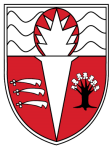Learning
Learning at Brentside
Curriculum Aims
Our curriculum is designed to enable all learners to have access to a broad and balanced curriculum, rich in depth and supportive of individual students’ needs and aspirations. Our curriculum aims to give students the opportunities they deserve and the knowledge and skills they require to be successful, positive members of society, both during their time with us and also beyond.
We believe in enabling students to develop a love of learning and a passion for distinct subject disciplines; becoming true artists, scientists and historians, engaged, involved and informed, confidently able to apply the skills that underpin each individual discipline, as opposed to merely learning the facts.
We believe in social equality and see a breadth of knowledge and skills as key to enabling our students to be confident, informed and capable. We are ambitious for our students and believe that all should have access to high quality qualifications and to creativity; we pride ourselves on the breadth of our arts provision and also on our EBacc curriculum, enabling all students to study a broad, quality curriculum throughout Key Stage 3 and Key Stage 4, before specialising at Key Stage 5.
Our curriculum is designed at all key stages to support the wellbeing of our students, through our enrichment subjects such as citizenship and physical education at all key stages, but also through our tailored curriculum, providing additional support and challenge, for example through the provision of additional literacy and numeracy learning, at Key Stages 3 and 4, or through the opportunity to study additional qualifications such as further mathematics.
Curriculum organisation
Key Stage 3 comprises of Year 7 and Year 8. We therefore have an extended Key Stage 4 comprising of Years 9 to 11. In responding to the new GCSE qualifications, introduced for assessment from 2018, and the greater content and level of challenge within each subject area, we chose not to narrow our curriculum and therefore rather than reduce the number of subjects studied, we increased the amount of time given to the study of each qualification, thus maintaining breadth, quality and choice for our learners.
Key Stage 3
Students follow the National Curriculum core subjects, which are: English; mathematics; science; computing and information and communication technology (ICT); art and design; design and technology; food technology; textiles; a modern foreign language (French or Spanish); geography; history; citizenship and physical education (PE). Students also study personal, social and health education (PSHE), drama, music and religious studies (RS). Parents/carers can remove their child from any/all RS lessons. If they wish to do so, they must contact Mr Bannon, Deputy Headteacher.
Key Stage 4
All students follow a balanced curriculum comprising a National Curriculum core together with additional subjects. The curriculum at Key Stage 4 will be tailored in places, to support individuals' strengths, abilities and interests. All students follow courses in English, English Literature, mathematics, PE, RS, citizenship and PSHE, science (comprising biology, chemistry and physics) and most follow a course in the arts (music, drama, and/or one of the visual arts). In addition, GCSE or equivalent courses in the following subjects are currently part of the curriculum in Years 9,10 and 11: further mathematics; French; Spanish; history; geography; music; music technology; drama; health and social care; textiles; photography; graphic products; 3D design; computing; food and nutrition and media studies. We also offer additional support lessons.
Between 75% and 95% of our students will study the full EBacc curriculum, with between 5% and 25% of our students studying additional literacy and numeracy or specific subject development lessons rather than studying a modern foreign language. There is fluctuation in the percentage of students completing the EBacc each year because decisions are based on the needs of each individual and in collaboration with students, families and the school.
Key Stage 5
The school has an active and vibrant Sixth Form offering a wide range of courses to students between the ages of 16 and 19.
The majority of students work towards level 3 (Advanced level) qualifications which will allow them to progress to university. These are A level, CTEC or BTEC certificates and diplomas. In addition, level 3 students study citizenship, PSHE and PE as part of their enrichment curriculum and study for the extended project qualification (EPQ) as an additional AS qualification.
Students who need further time to progress to level 3 study can follow level 2 BTECs (equivalent to GCSE 9-4 grades). These courses are of one-year duration and subjects offered may vary annually. Students on a level 2 course are also able to retake GCSEs in English and mathematics as well as studying a core enrichment programme of citizenship, PSHE and PE.
In the Sixth Form, the careers programme includes units on applying to university, apprenticeships and college. The citizenship and PSHE programmes focus upon issues such as political systems and media influence. Students attend regular review and target setting meetings with their tutors to enable them to achieve their best possible outcomes. Students volunteer to take positions of responsibility, for example, as house leaders or members of the school council.
We also have an extensive Work-Related Learning programme which supports and guides students in preparation for the world of work. All level 3 students have the opportunity to undertake work experience at the end of Year 12.
Our community service programme offers students the opportunity to assist in lessons, supporting other students in Years 7 to 11, as well as taking other charity or community leadership opportunities.
For further information about the curriculum, please contact Mr Bannon, Deputy Headteacher responsible for the curriculum.
